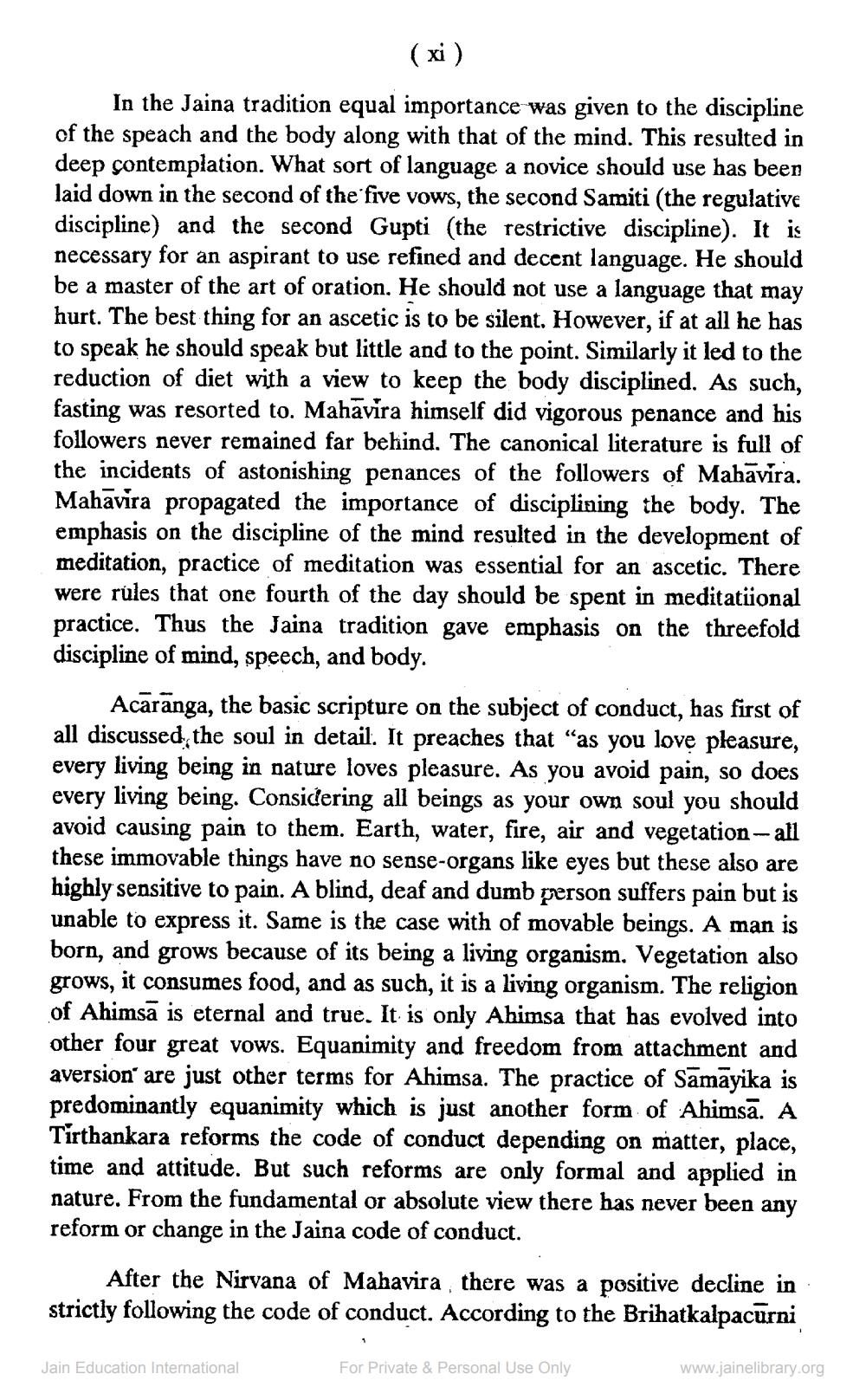________________
(xi)
In the Jaina tradition equal importance was given to the discipline of the speach and the body along with that of the mind. This resulted in deep contemplation. What sort of language a novice should use has been laid down in the second of the five vows, the second Samiti (the regulative discipline) and the second Gupti (the restrictive discipline). It is necessary for an aspirant to use refined and decent language. He should be a master of the art of oration. He should not use a language that may hurt. The best thing for an ascetic is to be silent. However, if at all he has to speak he should speak but little and to the point. Similarly it led to the reduction of diet with a view to keep the body disciplined. As such, fasting was resorted to. Mahavira himself did vigorous penance and his followers never remained far behind. The canonical literature is full of the incidents of astonishing penances of the followers of Mahāvira. Mahavira propagated the importance of disciplining the body. The emphasis on the discipline of the mind resulted in the development of meditation, practice of meditation was essential for an ascetic. There were rules that one fourth of the day should be spent in meditatiional practice. Thus the Jaina tradition gave emphasis on the threefold discipline of mind, speech, and body.
Acaranga, the basic scripture on the subject of conduct, has first of all discussed the soul in detail. It preaches that “as you love pleasure, every living being in nature loves pleasure. As you avoid pain, so does every living being. Considering all beings as your own soul you should avoid causing pain to them. Earth, water, fire, air and vegetation - all these immovable things have no sense-organs like eyes but these also are highly sensitive to pain. A blind, deaf and dumb person suffers pain but is unable to express it. Same is the case with of movable beings. A man is born, and grows because of its being a living organism. Vegetation also grows, it consumes food, and as such, it is a living organism. The religion of Ahimsā is eternal and true. It is only Ahimsa that has evolved into other four great vows. Equanimity and freedom from attachment and aversion' are just other terms for Ahimsa. The practice of Sāmāyika is predominantly equanimity which is just another form of Ahimsā. A Tirthankara reforms the code of conduct depending on matter, place, time and attitude. But such reforms are only formal and applied in nature. From the fundamental or absolute view there has never been any reform or change in the Jaina code of conduct.
After the Nirvana of Mahavira, there was a positive decline in strictly following the code of conduct. According to the Brihatkalpacūrni
Jain Education International
For Private & Personal Use Only
www.jainelibrary.org




